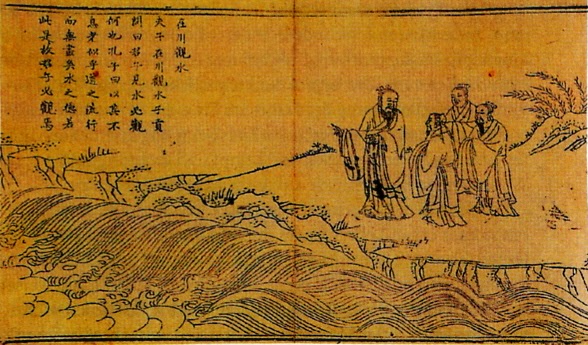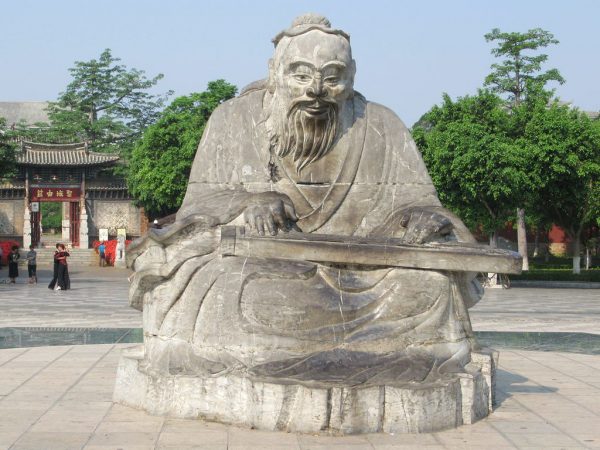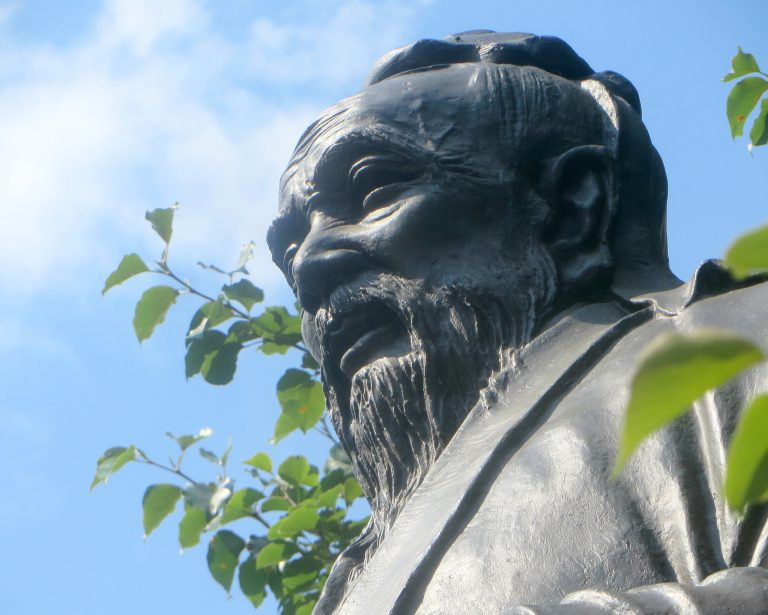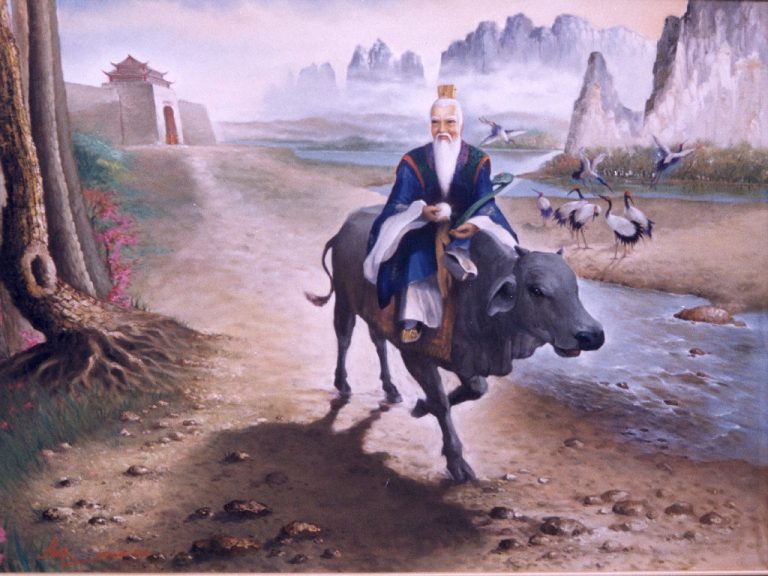Often considered China’s “paragon of sages,” Confucius spent his life passing on traditional culture. He valued Bildung, and throughout his life, he was “never tired of learning, and never weary of teaching others.” His student, Yan Hui, said, “Confucius is good at guiding and inspiring people.” Scholar Zhu Xi from the Ming dynasty said, “The Master taught people according to their talents.” Stories from ancient texts reveal how Confucius taught different people in different contexts.
I. Always be kind
One conversation Confucius had with his students explores how to deal with adversity.
Zi Lu said, “When others treat me with kindness, I treat them with kindness; when others treat me with unkindness, I treat them with unkindness.” Confucius commented, “This is the practice among the barbarians who have no moral rectitude and rituals.”
Zi Gong said, “When someone treats me with kindness, I treat him with kindness; when someone treats me with unkindness, I lead him to goodness.” Confucius commented, “This is the way friends should behave toward each other.”
Yan Hui said, “When someone treats me with kindness, I treat him with kindness; when someone treats me with unkindness, I treat him with kindness and lead him to goodness.” Confucius commented, “This is what should be done among relatives. If you can expand it and treat the world with sincerity, you are truly treating people with kindness!”
II. Farewell advice
Success
You are now signed up for our newsletter
Success
Check your email to complete sign up
Confucius’ student Zi Lu was going away on a long journey and came to bid farewell. Confucius asked, “Shall I present you with a wagon or a piece of advice?” Zi Lu replied, “Please, Master, give me a piece of advice.”

Confucius said, “If you cannot be vigilant in self-improvement, you will not be able to achieve your visionary goals; if you do not work diligently and do your job well, you will not be effective; if you do not treat others with sincerity and discretion, you will not be gaining their rapport; if you are not trustworthy, you will not be able to expect others to be trustworthy; and if you do not show sincerity and humility to others, you will not be able to follow propriety and ritual. If one is careful in these five areas, one will be able to last long in whatever he does.”
III. ‘Land of the Three Virtues‘
Once Confucius passed by a place called Puyi that his student Zi Lu had ruled for three years. Just as he entered the territory of Puyi, Confucius praised him, saying, “Zi Lu has done well, being respectful and trustworthy.” When he came to the city, Confucius praised him again, “Zi Lu has done well, he has been devoted and forgiving.” When he arrived at Zi Lu’s site of governance, Confucius could not help but praise him again, “Zi Lu has done a good job, being perceptive and decisive.”
His student Zi Gong was traveling with him and, holding the reins in his hands, he asked Confucius, “Master praised Zi Lu three times for his goodness before seeing him. Could I please hear what he has done well?”
Confucius said, “I have seen what he had done. When I entered his realm and saw the fields in order, the crops flourishing, the weeds eradicated, and the waterways between the fields deepened, it was because he was respectful, prudent, and trustworthy. It inspired the people to do their best.

“When I entered his town, I saw that the walls and houses were in good condition, the merchants were prosperous, and the trees were flourishing. It was because of his devotion and forgiveness that the people were meticulous and not careless.
“When I arrived at his court, the courtyard was clean, and the people below him were conscientious and devoted. It was because he was wise and decisive, and his decrees did not disturb the people. It seems that Zi Lu’s benevolent governance had achieved remarkable results. Even if I praised him three times in a row for his good work, how could I have said enough about all the good things about him?”
Later, Puyi became known as the “Land of the Three Virtues.”
IV. To govern is to correct the ills of the time
Zi Gong asked Confucius, “When the Duke of Qi asked you for advice on good governance, you answered, ‘Good governance lies in saving money.’ When Duke of Lu asked you about it, you replied: ‘Good governance lies in the education of one’s subjects.’ When Lord of Chu asked about it, you responded: ‘Good governance is to make those nearby happy and those far away return.’ Three people asked the same question, but you answered differently, is there a different interpretation?”
Confucius replied, “For each man has his circumstances. When the Duke of Qi ruled the country, he built extravagant pavilions. When he hunted, he encompassed too much land. He gave away three pieces of land in one morning, which could provide for a thousand chariots. Therefore, to him I replied, ‘To govern well is to save money.'”
“The Duke of Lu had three powerful ministers who formed a small group and rejected other ministers. So I answered him, ‘To govern well is to educate the ministers.’”
“The Chu state has a large territory but a small capital where the people feel alienated. No one wants to settle down and live there. Therefore, I said, ‘To govern well is to make those nearby happy and those far away return.’ I dealt with three different situations in different ways.”
“The ‘Odes’ or ‘Poetry’ records, ‘After a long period of unrest and mourning, the people have run out of money, but no relief has ever been given to them from above.’ It is an expression of sorrow for the woes caused by extravagance and waste. It also records, ‘Those flattering villains are always slandering.’ It points to the woes caused by the treacherous ministers who deceives the ruler. It also says, ‘Amid the unrest, there is the sorrow of separation and the pain of death, where shall we flee?’ It is a sigh of despair at the misfortune caused by displacement. Scrutinizing these three scenarios, can the governance address the different challenges in the same way?”
V. Five ominous practices
The Duke of Lu once asked Confucius, “I have heard that it is unlucky to build an extension to the east of a house. Is it true?”
Confucius replied, “There are five kinds of inauspicious things, but adding additions to the east side of a house is not one of them. It is unlucky for the family to abandon the elderly and care only for the children; it is unlucky for a nation to abandon the wise but appoint the unworthy; it is unlucky for the social customs that the old and wise are unwilling to teach, while the young refuse to learn; it is unlucky for the world that men of talent and virtue retire, and fools without wisdom and virtue come to power.”
VI. A superior man is always careful
When Zi Gong went to be the governor of Xinyang and was ready to take up his post, he bid farewell to Confucius, who said, “Be diligent, be prudent, and direct agricultural production according to the natural seasons. Do not rob, do not exploit, do not do violence, and do not steal.” Zi Gong asked, “Have I ever committed the crime of stealing since I studied with the master as a young man?”
Confucius responded, “You do not have a deep understanding of this. To replace a person of both talent and virtue with a person of no talent and virtue is robbing; to replace a person of talent with a person of no talent is exploiting; to be lenient in governance and harsh in punishment is violent; to take all the good things for oneself is ‘theft.’
“Theft is not only what is generally called theft of property. I have heard that good officials follow the decree and benefit the people; those who are not good distort the decree and cause the people to suffer, this is the root of public discontent.
“There is no better way to rectify the governing style than to be fair; there is no better way to manage wealth and goods than to be honest. Integrity and honesty never change. If you hide others’ strengths, you are burying talents; if you do not point out each other’s shortcomings privately but slander each other outside, it will be impossible to get along in harmony. Therefore, there is no place where a morally cultivated person won’t be careful. Be strict with yourself and tolerant with others so that you can use your virtue and wisdom for the benefit of the people.”













